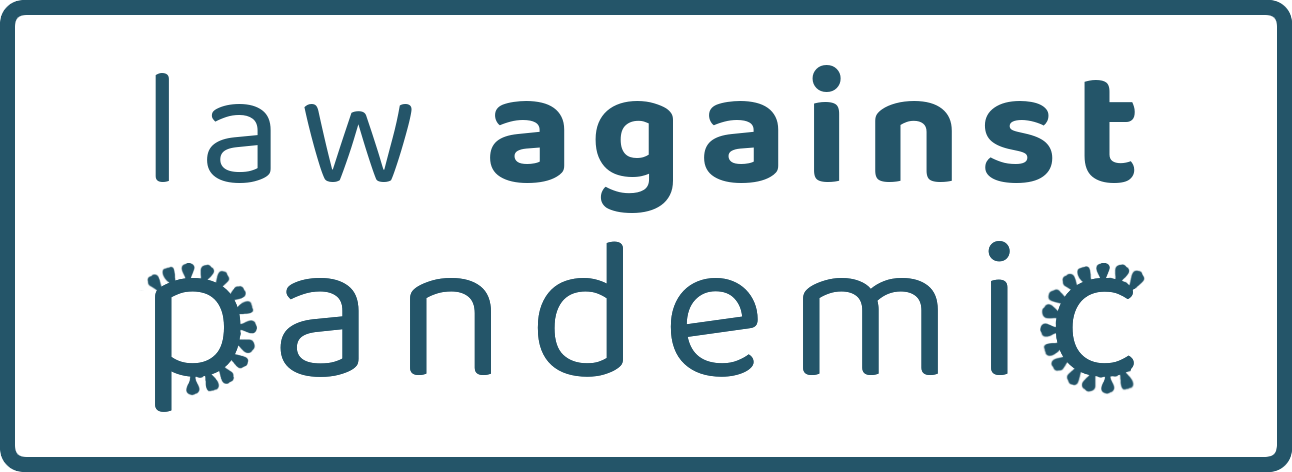
The pandemic of severe respiratory disease called COVID-19, announced by the World Health Organisation on March 11th 2020, has affected all areas of human activity. Therefore, it was natural that it must also be at the centre of attention of the law and all its branches, because the reaction of public authorities to such a threat must be legally sanctioned.
The effects of the pandemic also affect the way local government bodies, i.e. the emanation of the state which is closest to the citizens, operate. Bearing in mind that the virus causing this disease has many features in common with the viruses responsible for SARS and MERS epidemics, i.e. it is characterized by higher mortality, but its transmission may be limited by levelling both human mobility and creating larger clusters, a dilemma has arisen whether it is safe to organise meetings of commune, district and provincial councils, which, by definition, are conducive to the creation of communities, while maintaining the recommendations of the sanitary services, which are sanctioned by subsequent normative acts [1]. Many of the local government units have decided to carry out the planned sessions remotely. The question was, did they have a legal basis for this and whether the resolutions adopted on them are legal? The principle of openness of the meetings of the bodies was at stake as well as the right of citizens to participate in them.
1. The legal situation before the outbreak of the disease.
Before the outbreak of the pandemic, the main legal acts regulating the organisation of sessions of constituting bodies of local government units were three local government acts: municipal [2], district [3] and voivodship [4]. They all contained an almost identical regulation on this subject, namely that the resolutions are passed by a simple majority of votes in the presence of at least half of the statutory composition of the council, in an open vote, unless the law provides otherwise.
It has therefore become extremely necessary to explain what the presence of at least half the composition (quorum) means: should it be physical presence or rather only some kind of mental unity, acting with the intention of making a decision, expressing a common statement, and the way itself is secondary.
The strongest argument against the second option is that there is no chance to control if only the authorized councilors are taking part in the sessions and voting. The participation of citizens is limited as well and it is their constitutional right that can be limited only in the statute.
2. The legal changes introduced by the so-called Anti-Crisis Shield Act of March 31st 2020 [5].
Article 15zzx, introduced by the Act of March 31st 2020 to the so-called Coronavirus Act [6] seems to dispel all doubts. Under it, during a state of epidemic danger or a state of epidemic, the constituting bodies of local government units and the following collective bodies: executive bodies in local government units, unions of local government units, metropolitan unions, regional chambers of auditors and local government appeal colleges may convene and hold meetings, sessions, meetings, assemblies or other forms of action appropriate for these bodies, as well as take decisions, including resolutions, using means of communication at a distance or by correspondence (remote meeting mode).
Therefore, bearing in mind the concept of a rational legislator, it must be assumed that remote sessions were not allowed to be conducted solely on the basis of the regulations of the three of territorial self-government acts. If we were to assume otherwise, then the provision of art. 15zzx would be superfluous in its essence, and this is contrary to the basic rules of interpretation. In that case, the statements made by supervisory bodies that allow to conduct sessions in remote way before art. 17zzx has come to life are incorrect, as are the resolutions made by the constituting bodies of local government units in that mode.
However, with one problem solved, a few more have emerged. For instance, the ancillary units of municipal self-government were not mentioned in the regulation, so it is to be assumed that their sessions should be conduct in traditional way.
###
References:
[1] E.g. Regulation of the Council of Ministers of March 31st 2020 on establishing certain restrictions, orders and prohibitions in connection with the occurrence of the state of epidemics.
[2] Act of March 8th 1990 on municipal territorial self-government (Ustawa z dnia 8 marca 1990 r. o samorządzie gminnym, Dz.U. 1990 nr 16 poz. 95).
[3]Act of June 5th 1998 on district territorial self-government (Ustawa z dnia 5 czerwca 1998 r. o samorządzie powiatowym, Dz.U. 1998 nr 91 poz. 578).
[4] Act of June 5th 1998 on regional territorial self-government (Ustawa z dnia 5 czerwca 1998 r. o samorządzie województwa, Dz.U. 1998 nr 91 poz. 576).
[5] Act of March 31th 2020 amending Act of 2nd March 2020 on special solutions related to the prevention, prevention and eradication of COVID-19, other infectious diseases and crisis situations caused by them (Ustawa z dnia 31 marca 2020 r. o szczególnych rozwiązaniach związanych z zapobieganiem, przeciwdziałaniem i zwalczaniem COVID-19, innych chorób zakaźnych oraz wywołanych nimi sytuacji kryzysowych, Dz.U. 2020 poz. 568).
[6] Act of 2nd March 2020 on special solutions related to the prevention, prevention and eradication of COVID-19, other infectious diseases and crisis situations caused by them (Ustawa z dnia 2 marca 2020 r. o szczególnych rozwiązaniach związanych z zapobieganiem, przeciwdziałaniem i zwalczaniem COVID-19, innych chorób zakaźnych oraz wywołanych nimi sytuacji kryzysowych, Dz. U. Dz.U. 2020 poz. 374).


